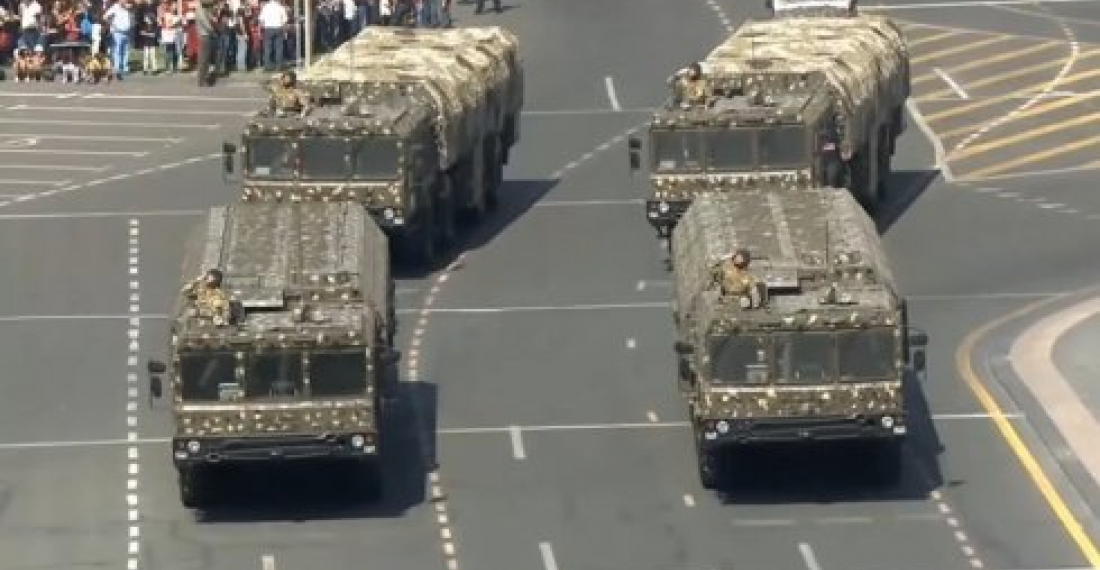Armenia's Defence Minister, Vasgen Sargsyan has spelled out how Armenia sees the use of its newly aquired Iskander Missile system
The Minister said that "the system is a weapon that is capable to cool a hothead while making a decision". Speaking to RIA Novosti, the Russian news agency, the Minister said, "I can present the algorithm. The function and characteristics of this weapon enable it to cause irreparable damage to the infrastructure of the country against which it is used. So, the decision to use Iskanders will be closely linked to the development of the situation".
The Defence Minister noted that although the Iskander systems were considered to be a deterrent weapon, they could be used as "a guaranteed strike weapon if the necessity arises." The Minister added that Iskander missile systems are owned by the Armenian armed forces and are managed by Armenian army officers.
The Minister however refused to give any information with regards to the conditions and cost under which Russia supplied the system to Armenia, saying that it was top secret.
Armenia displayed the Iskander Missile system for the first time during a military parade in Yerevan on 21 September 2016 marking the 25th anniversary of Armenian independence. Since then there has been speculation as to whether the weapon system was under the operational control of the Armenian Armed Forces, or if the Russians still held a control over its ultimate use.
source: commonspace.eu with agencies
photo: Iskander Missiles on display at a military parade in Yerevan on 21 September 2016. (archive picture)







